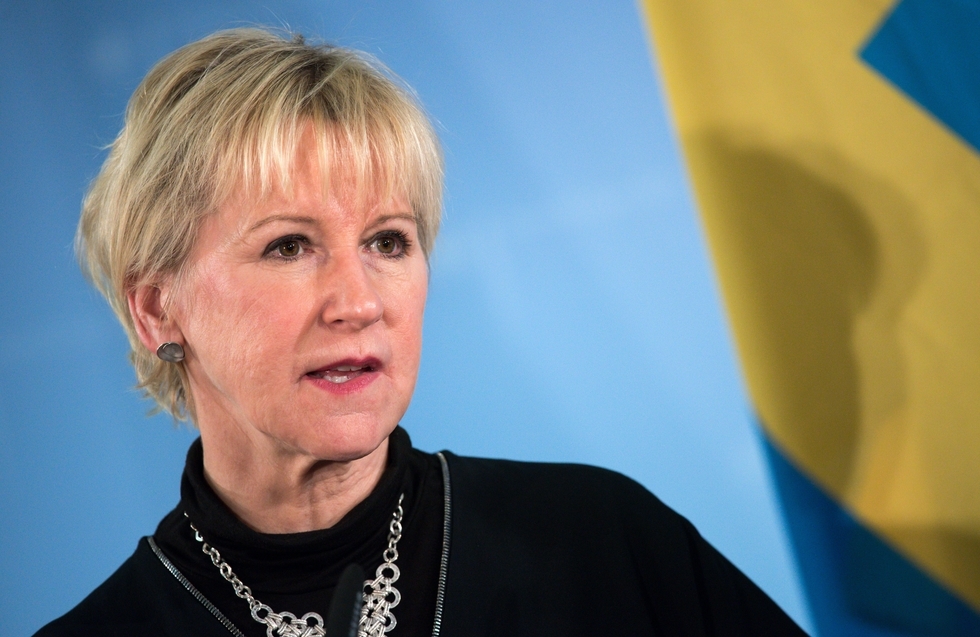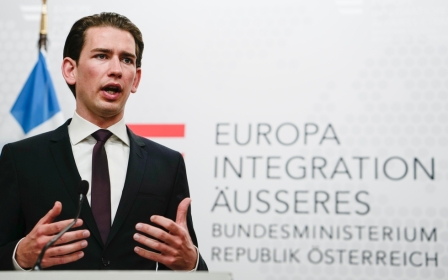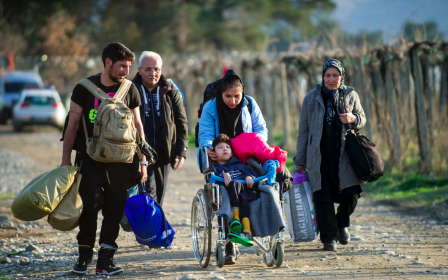Turkey summons Austrian envoy over age-of-consent report in airport

Turkey summoned Austria's charge d'affaires in Ankara over what it said was an "indecent report" about Turkey on a news ticker at Vienna’s airport, a foreign ministry official said on Sunday.
"Turkey allows sex with children under the age of 15," read a headline on an electronic news ticker at the airport, images circulated on social media showed.
"Our disturbance and reaction over this display, which tarnishes Turkey's image and deliberately misinforms the public, have been strongly conveyed to the charge d'affaires," the Turkish ministry official said, adding that the headline was removed following the ministry's intervention.
Turkey's constitutional court last month ruled in favour of removing a provision in the penal code that identifies all sexual acts against children under the age of 15 as "sexual abuse" following an application made by a local court.
The 7-6 ruling by the panel of judges, which is to take effect in January 2017, stirred outrage on Turkish social media and among women's rights activists, who voiced concern that it would lead to cases of child abuse going unpunished.
Activists were expected to seek a reversal of the ruling, possibly by going to the European Court of Human Rights, Turkish media cited them as saying.
Swedish Foreign Minister Margot Wallstrom waded into the row on Sunday, tweeting: "Turkish decision to allow sex with children under 15 must be reversed. Children need more protection, not less, against violence, sex abuse."
An Austrian Foreign Ministry spokesman confirmed Turkey had summoned its charge d'affaires on Saturday evening. "We take notice of the reaction of the Turkish authorities and this is for us a matter of freedom of the press," Thomas Schnoell said.
A spokesman for Vienna airport said that while the news ticker was on its premises, it was not responsible for its contents. "[It] is operated by an Austrian newspaper, which has editorial responsibility over its content," the spokesman said. "The airport does not have any influence over its contents."
The incident came little more than a week after a similar row over another ticker displayed at the airport, in which the same newspaper declared: "If you go to Turkey, you are supporting [Turkish President Recep Tayyip] Erdogan."
This message was also taken down following a complaint from Turkish authorities.
Tensions between Turkey and Europe have risen since Ankara's crackdown in the wake of last month's failed coup in Turkey.
Turkish authorities have detained, sacked or suspended tens of thousands of people over their alleged links with Fethullah Gulen, a US-based cleric whom the government blames for orchestrating the coup attempt.
Last week Turkey's foreign minister called Austria the "capital of radical racism" after Austrian Chancellor Christian Kern suggested ending EU accession talks with Turkey, which have made minimal progress since they began in 2005.
Erdogan and many Turks accuse the West of focusing more on the rights of the coup plotters and their supporters than on the coup itself, in which more than 240 people were killed after rogue soldiers bombed parliament and seized bridges with tanks and helicopters.
Halting Turkey's EU accession process could scupper a landmark migration deal between Brussels and Ankara designed to stop illegal migration to Europe via Turkey in return for financial aid, the promise of visa-free travel to much of the bloc and accelerated talks on membership.
Turkey has lived up to its side of the deal with Brussels, but visa-free access has been subject to delays due to a dispute over Turkish anti-terrorism legislation, which some in Europe see as too broad, and because of its post-coup crackdown.
Middle East Eye propose une couverture et une analyse indépendantes et incomparables du Moyen-Orient, de l’Afrique du Nord et d’autres régions du monde. Pour en savoir plus sur la reprise de ce contenu et les frais qui s’appliquent, veuillez remplir ce formulaire [en anglais]. Pour en savoir plus sur MEE, cliquez ici [en anglais].




